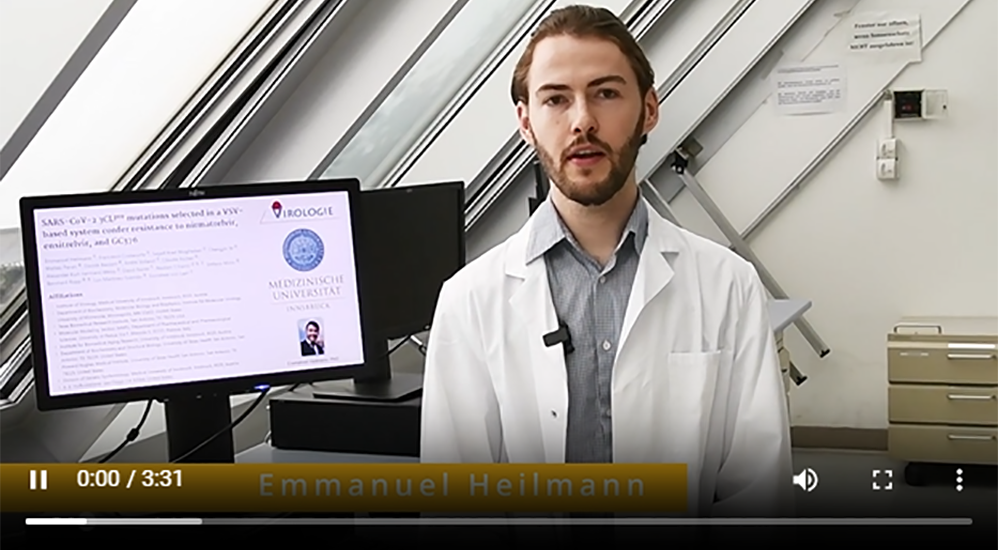Emmanuel Heilmann
Institute of Virology
Medical
University of Innsbruck
Molecular Virology, drug resistance, viral evolution
Help me to win the Young Researcher
Award 2023 from Promega.
Why should you vote for me!
We are developing exiting new technology to avoid gain-of-function research with dangerous viruses. This technology allows us to prepare for the next pandemic and to fight viral resistance against antiviral drugs
Abstract
To license an antiviral drug and for endemic as well as pandemic preparedness, it is paramount to study resistance mechanisms of currently circulating and potentially emerging viruses. However, studying dangerous pathogens is difficult due to the necessary safety precautions and, even more importantly, possible alterations of the virus in the laboratory that increase its pathogenicity (also called "gain-of-function" research). Currently, two dangerous Coronaviruses, SARS-CoV-2 and MERS-CoV, are circulating in humans and animals. Whereas SARS-CoV-2 is transmitting between humans since already three years, MERS-CoV so far only jumps occasionally from camels to humans in a process called zoonotic infection. Notably, MERS-CoV seems to be very lethal with estimations going up to 30 % mortality.

Describe the activity of your laboratory in a few lines:
We are an oncolytic virus lab with a focus on vesicular stomatitis virus (VSV). Since the pandemic, we have also adapted SARS-CoV-2 research topics and coronaviruses in general. My projects are at the intersection of VSV and SARS-CoV-2, because I develop method that use VSV to study aspects of SARS-CoV-2 and more recently also MERS-CoV.

Tell us something about your scientific background :
I studied Molecular Medicine at the Medical University of Innsbruck. For my bachelor thesis, I started working at the Institute of Virology on VSV, continued as a student assistant and completed my master and doctoral thesis there. First, I developed new methods to control viral replication in a therapeutic setting. VSV is used to treat cancer. Therefore, tight control over its replication is crucial. When the SARS-CoV-2 pandemic started, I shifted to developing technology to study the activity of viral enzymes, how to block them and how to predict mutations of dangerous viruses such as SARS-CoV-2 and MERS-CoV against antiviral drugs.
Can you describe yourself in 3 adjectives?
Driven, quiet, pragmatic
If you were a famous scientist, who would you be?
John von Neumann
What are your other interests outside of science?
Martial arts, Piano, Foodsharing (environmental organization)